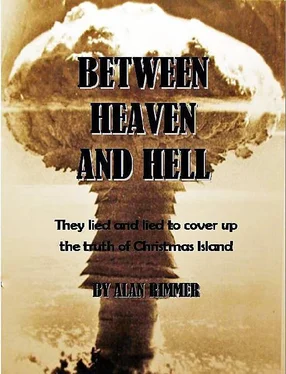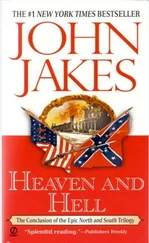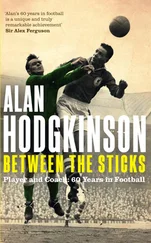At the gates, the radiation sensor had frozen at a radiation reading higher than existed in Hiroshima after the atomic bomb.
Telyatnikov and his 27-man crew pressed on nevertheless, even though they knew it was now a suicide mission. They stared up in horror at the reactor room where flames were leaping more than 50 feet into the air, and at tiny figures scurrying in panic in the exposed upper levels.
Several times Telyatniknov climbed to the 120-foot top of the blazing building to direct operations at the very heart of the blaze. He stayed there until the roof collapsed and the flames were finally extinguished.
He and his incredibly brave crew carried on until they were finally relieved by fire fighters from Kiev. The firemen along with paramedics and power-station guards who were injured were flown to Moscow’s hospital Six where they were put into an isolation ward and enclosed in sterile plastic bubbles.
About 300 people, suffering from radiation sickness and damage to skin and lungs were later treated at the hospital. But within the first few days, 22 died following a terrible pattern of vomiting, bleeding, black blisters, hair loss and high fever, before lapsing into a coma from which they never recovered.
All over the Soviet Union the fire-fighters of Chernobyl were being treated to the kind of acclaim usually reserved for war heroes.
Two of the fire team that died were given posthumous medals. Telyatnikov, aged just 35, and a father of two, was the only survivor given permission by the authorities to talk about his ordeal.
In a screened interview from his hospital bed, speaking hardly above a whisper, he said: “The fire was raging, devouring everything. The reactor’s mouth was pouring out a death-carrying breath. But we had no choice but to stay. It was our duty.
“We didn’t know how many people were trapped and we had to stop the fire spreading to the other reactors. We found eight survivors, naked and huddled in the lavatories, miraculously still breathing.
“We stayed for three hours in the choking, blinding poisonous atmosphere and one by one my men began to buckle. I saw my comrade Vladimir Tisschura writhing on the ground and after that Nikolai Vaschuk swayed and fell flat on his back. Then a third man fell. Bravest of all was Vitali Golopa who was only 25.
“He plunged into the radioactive pool beneath the reactor to pull the plug and drain off the contaminated water. He died soon after…”
The outside world was just as enthralled by their bravery as in the Soviet Union. Messages of support and offers of medical and technical help poured in.
Ken McGinley, still pushing his own nuclear agenda back home, wasn’t going to let the opportunity pass. As far as he was concerned he and the Chernobyl firefighters were “brothers in arms” and he persuaded his local council and fire service authority in Renfrewshire to strike two bravery plaques in honour of the heroes of Chernobyl.
But he wasn’t content to send these prestigious awards via the diplomatic bag: he decided to travel to Chernobyl to personally deliver them. But he was told that was impossible. In those days the Soviet Union was still a closed society for foreigners, and even ordinary Soviet people were not allowed to travel inside their own country without permission.
In any event, the hero fire fighters were in an isolation hospital in Moscow, and virtually the whole of Ukraine and Belarus had been declared a disaster zone.
But McGinley was not to be denied: somewhere he had read the Chernobyl fire-fighters were admirers of British soccer. Using his local contacts he persuaded the players of Celtic and Rangers, Scotland’s premier soccer teams, to sign two footballs which McGinley said he wanted to present personally to the heroes of Chernobyl.
One bright morning he walked up the imposing driveway of the Soviet embassy in Kensington Palace Gardens, London, and knocked on the door. A startled security guard eventually showed him into an imposing reception room dominated by a large, ornate desk.
Sitting behind it was a dapper little diplomat who had carefully placed McGinley’s two soccer balls into the ‘In’ tray (they had been removed from McGinley to be security scanned).
With a quizzical expression he listened to the Scotsman’s request to personally deliver the objects to the heroes of Chernobyl. He looked at McGinley, then at the footballs. Finally he reached for the telephone.
Within a week the Soviets granted a special visa for McGinley to make the trip as the “honoured guest” of the Soviet people. Soviet President Mikhail Gorbachev, who had taken a personal interest in directing events at Chernobyl, apparently authorised the trip after speaking directly to the British newspaper magnate Robert Maxwell who wanted the story for his newspapers.
Maxwell, a well-known eccentric and business buccaneer, lived up to his billing by personally telephoning McGinley at his home to inform him: “You are going to Russia!” McGinley was taken aback when the tycoon went on to ask him how long he had been a member of the Communist Party!
The bemused Scot recounting the call later said, “I told him I was a Catholic, and that seemed to satisfy him.”
Within a fortnight McGinley landed at Moscow’s Sheremetyevo international airport to the sort of reception usually given to a visiting world leader.
He was met by various apparatchiks from the Moscow Mayor’s office who whisked him off in some splendour in a convoy of sleek Russian Zil limousines to his hotel, where a dinner had been prepared in his honour.
After a visit to the Bolshoi ballet and the Moscow State Circus he was taken to see Telyatnikov and the rest of the Chernobyl survivors at Hospital Six.
The third floor of the hospital had been set aside for dozens of survivors of the Chernobyl disaster who were cocooned in isolation units. For the most part the victims lay motionless in beds, covered in creams and sterile sheeting that swathed their bodies including their heads.
Only their eyes were uncovered as they stared up at the ceiling. There was little hope for some as they quietly waited for death. For others, those that had handled radioactive equipment, extensive skin grafts were the only answer. And, of course, they all faced the near-certainty of contracting cancer later in life.
Half a million people, mainly women and children who had been evacuated to safe areas in the countryside, faced the same uncertain fate although the State authorities insisted it was just a precautionary measure.
McGinley, who bizarrely was greeted as ‘Dr McGinley’ wherever he went, was bombarded with assurances from various scientists and government officials that the radiation plume had only touched the city briefly when there was a sudden wind change, but there was little residual fallout.
Kiev was now considered safe and the scientists were keen for him to encourage the large numbers of foreign students and tourists who had fled in panic in the immediate aftermath of the disaster to return.
Before he knew it McGinley was escorted to the airport and two hours later touched down at Kiev’s Borispol airport. In keeping with his new-found status as international envoy he was placed in glorious isolation at the front of the plane, while the rest of the passengers were herded to the back.
He was the first off the plane and soon on to a smart little mini-bus (his fellow passengers disembarked from the rear onto an open cart pulled by a tractor) and was whisked through customs controls without the usual formalities.
The first thing he saw on stepping out of the terminal building was a tanker truck spraying water across the forecourt. In the distance another tanker was similarly spraying the approach road.
McGinley walked across mats foaming with detergent through the arrivals hall, and was “swept” by a uniformed official with a radiation monitor before being escorted to his car.
Читать дальше












